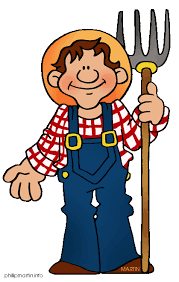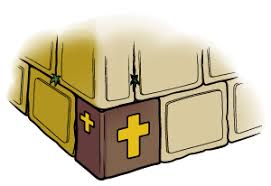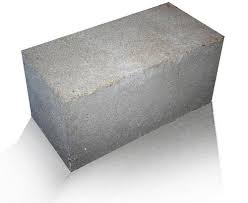Matthew 21:33 – Hear another parable. There was a master of a house who planted a vineyard and put a fence around it and dug a winepress in it and built a tower and leased it to tenants, and went into another country.
Jesus goes on to give yet another parable. It has at least two purposes. What do you suppose they are? Think about your answer as we examine this passage.
The parable starts by saying there was a master or proprietor of an estate. This means that he had the legal right or exclusive title to everything in that estate. He is the owner of it all, whether or not it is actually in his possession.
This owner goes to an incredible amount of time and effort to create an amazing vineyard. He plants only the choicest of vines.
 He encloses the vineyard with a fence. This is probably not a fence like you and I typically think of. Often in this part of the world 'fences' are actually hedges of thick, thorny plants. These were more effective in keeping raiders out than the common wooden or metal fences we use today.
He encloses the vineyard with a fence. This is probably not a fence like you and I typically think of. Often in this part of the world 'fences' are actually hedges of thick, thorny plants. These were more effective in keeping raiders out than the common wooden or metal fences we use today.
The tower was a very large, tall edifice. We would think of it as a guard tower. From this position, the keeper of the vineyard could see trouble coming from a long way off. He would be able to protect the vineyard from anything that wanted to destroy or ravage the crops. This (along with the thorny hedge) was more than sufficient to protect the crop from thieves and animals.
This particular vineyard also contains a winepress. Back in this time, a winepress had two parts. There was a large receptacle cut into the rocky side of a hill. This is where the ripe grapes were placed. The receptacle had a trough leading to a vat. A man would climb into the receptacle and tread the grapes with his feet. As he crushed them, the juice would flow into the vat.
This was often referred to as 'treading the grapes'. The person who did so would often stain their clothing with grape juice, which sometimes gave the appearance of being covered in blood.
All things considered, we see that no expense was spared by the owner in creating this vineyard. He did not 'cut any corners' or leave anything out. It was an amazing, valuable, top-of-the-line operation.

At this point, the owner leases the vineyard to some people.
There were commonly three different types of leases back then. In the first type, the lessees received a portion or a percentage of the produce for their payment. For instance, they might get 75% of the crop while the owner gets 25%.
A second type of lease was where the lessee simply paid a monetary fee to the owner at the time of the contract, and then kept all of the harvest.
The third type was where the lessee was required to give the owner a certain, specific amount of the harvest first, while they kept whatever was left over. For example, they owner might want 1000 bushels of grapes. The lessee must give him this first as payment, then they would keep whatever was harvested over and above that amount.
Such leases could be entered into for a single year (season) or for life. In some cases, they could even be hereditary (the lease could be passed from father to son). In this parable, the third type of lease seems to be indicated. But regardless of which type of lease was used, the master is still the owner and as such, he will expect a harvest or payment of some kind.
And so, leaving them in charge, the owner departs on a journey to a far country.
Matthew 21:34 – When the season for fruit drew near, he sent his servants to the tenants to get his fruit.
The owner was not making an unreasonable or unexpected request. It had been established from the beginning of the lease, that payment would be due.
So let's begin to unravel the meaning of this parable.
Who is the owner or master?
If you said 'God', you are correct.
What does the vineyard represent? Why?
The vineyard represents God's chosen people. At that time, the vineyard consisted exclusively of the nation of Israel. Clearly, God had specifically 'cultivated' this nation as his own people. He had plans to bless and prosper them; thus he expected a great harvest from his vineyard. God valued them highly just as the master valued his vineyard.
The vineyard represents God's chosen people. At that time, the vineyard consisted exclusively of the nation of Israel. Clearly, God had specifically 'cultivated' this nation as his own people. He had plans to bless and prosper them; thus he expected a great harvest from his vineyard. God valued them highly just as the master valued his vineyard.
Jesus may be using Isaiah 5:1-7 as the basis for his parable.
Isaiah 5:1-2 - Now will I sing to my well-beloved a song of my beloved regarding his vineyard. My well-beloved has a vineyard on a very fruitful hill: And he dug it, and gathered out its stones, and planted it with the choicest vine, and built a tower in the midst of it, and also made a winepress in it: and he expected that it should bring forth grapes, and it brought forth wild grapes.
Who are the tenants or lessees of the vineyard?
They are the religious leaders of Israel - the chief priests, the Pharisees, the Scribes, the Sanhedrin and formerly the kings.

God had called and charged these leaders with the care of his people. They were to work among God's vineyard (people) by watering (teaching), pruning (correcting and calling to repentance), fertilizing (preparing them to receive the Messiah), etc. In short, they were to take care of the people in such a way that they produced spiritual fruit for God.
What was the purpose of the hedge of thorns and the watchtower?
These represent the means of protection that God established for the people. The religious leaders were to keep watch over the people; they were responsible for manning the watch tower.
They should have sounded an alarm when they saw idolatry creeping into the vineyard. They should have sounded an alarm when the Jews intermarried with the Canaanites. They should have sounded an alarm when the kings made treaties with Egypt. They should have noticed when the people drifted further and further into works of the law, instead of relationship with God.
In short, they should have seen the attacks of Satan coming in the distance and provided spiritual guidance/protection for the nation. But they didn't. They failed in their duty to be a watchman over the nation. In fact, they were the number one cause of the people going astray!
The hedge that surrounded the vineyard/nation was maintained by God, as long as they remained true to him. However, when the people rebelled against God, he allowed the hedge to fail and Israel's enemies ravaged her.
Matthew 21:35-36 – And the tenants took his servants and beat one, killed another, and stoned another. Again he sent other servants, more than the first. And they did the same to them.
This part of the parable tells us one of the main reasons why Jesus gave this parable, at this time, in this place.
Who are the servants? What is the reason for the parable?
The servants represent the true prophets and messengers of God. God sent the nation of Israel prophet after prophet; warning after warning as he tried to get them to remain true to him. He did everything he could do to bring them to a place of maturity where they could produce spiritual fruit. But the leaders of Israel did not embrace the messengers of God. Time after time, they rejected, humiliated and killed them.
Isaiah 5:3-4 - And now, O inhabitants of Jerusalem, and men of Judah, judge, I pray you, between me and my vineyard. What could have been done more to my vineyard, that I have not done in it? Why, when I expected that it should bring forth grapes, it brought forth wild grapes?
This was acutely true at the time when Jesus gave this parable. God had sent John the Baptist to testify to the coming of the Messiah. Yet, the rulers rejected both him and his ministry. They were in rebellion to God, just as the tenants were in rebellion to the master of the vineyard. Just as the tenants had set themselves up as the dictators of the vineyard, so had the religious leaders set themselves up as dictators over Israel, seizing power, adoration, authority and glory that did not belong to them. They wanted to usurp God's authority and be the masters of Israel!
Sadly, the fault did not lie completely with the leaders. The Jewish nation as a whole had often rejected the prophets of God as well.
So, once again, Jesus is being merciful specifically to the religious leaders that are confronting him, and more generally, the whole nation. Instead of rejecting them forever, he warns them about their rebellion and gives them another chance to repent and turn from their sin.
Matthew 21:37 – Finally, he sent his son to them, saying, 'They will respect my son.'
In the parable, who is the Son of the master?
Of course you are correct! It is Jesus!
Please keep in mind that the parables have limits. Each and every circumstance in a parable does not exactly translate to a spiritual truth. In this case, God was not in any way ignorant of the fact that Jesus was going to be rejected and crucified by men. Clearly, God knew this from the beginning. So don't be confused by the attitude of the master in the parable. The rebellion of the Jewish nation (particularly the religious leaders) is the main focus of the parable.
Matthew 21:38-39 – But when the tenants saw the son, they said to themselves, 'This is the heir. Come, let us kill him and have his inheritance.' And they took him and threw him out of the vineyard and killed him.
Obviously, this is a prophetic declaration about Jesus' imminent crucifixion.
Here we find the second reason for the parable. Did you find it?
Matthew 21:40 – When therefore the owner of the vineyard comes, what will he do to those tenants?
Here, Jesus asks the rulers to be involved in the parable. Using their own wisdom and knowledge, he asks them how the tenants of the vineyard should be judged. At this point, one can only surmise that they did not recognize themselves as the tenants!
Matthew 21:41 – They said to him, "He will put those wretches to a miserable death and let out the vineyard to other tenants who will give him the fruits in their seasons."
The Jews themselves bear witness that the punishment they are about to endure is a just and righteous one. They have approved/affirmed their own judgment!
Isaiah 5:5-6 - And now; I will tell you what I will do to my vineyard: I will take away its hedge, and it shall be eaten up; and break down its wall, and it shall be trampled down: And I will lay it waste: it shall not be pruned, nor dug; but there shall come up briers and thorns: I will also command the clouds that they rain no rain upon it.
Thus, God would very soon take leadership the 'vineyard' away from the Jews and give control of it to the Gentiles, who would honor God by producing fruit. Clearly, the Gentiles have been the main herald of the gospel message for most of this dispensation.
Not only that, but God also changed the nature or makeup of the vineyard. It was no longer exclusively made up of Jews. God choose to graft the Gentiles into his vineyard/kingdom as well (Romans chapter 11)!
What a very great honor and privilege for you and I! We have the opportunity to expand and tend to the vineyard of God (the church). How are you contributing to this great work?
Matthew 21:42 – Jesus said to them, "Have you never read in the Scriptures: 'the stone that the builders rejected has become the cornerstone; this was the Lord's doing, and it is marvelous in our eyes'?
Here Jesus makes his case another way, this time with a building metaphor. He makes reference to Psalms 118:22:
Psalm 118:22 - The stone which the builders rejected has become the head stone of the corner.
Jesus as the cornerstone of the church is a much used metaphor in the New Testament (Acts 4:11, Romans 9:33, Ephesians 2:20, 1 Peter 2:7, etc).
The cornerstone is a block of great importance when constructing a building because it is the thing that binds together the sides of the building. Thus, Jesus is the chief cornerstone that binds the church (Jews and Gentiles) together.

The cornerstone is also the foundation upon which the building rests. So Jesus is also the foundation of the kingdom of God.
The chief priests and religious leaders were the general contractors of God's original building, the Jewish nation. But the building was doomed to fail, because it did not have the correct foundation; the Jews rejected Christ as the cornerstone (Matthew 7:24-27). They would not allow him a place in their edifice. They cast him aside as being unfit for their plans.
But mankind's plans cannot negate the plans and purposes of God! The Jews mistakenly thought that since they were God's chosen people, God would not have a church if they were cut off. They did not realize that when God uses mankind to bear his name and reflect his glory it is not because God needs them, or is beholden to them. It is because he wants to bless them and have relationship with them. However, if they are unwilling to partner with God, he will move on. Remember, if people keep silent, the very rocks will cry out in praise to God!
The Jew's rejection of Christ did not adversely affect God one little bit. However, it did have an effect upon the Jewish nation. Through their rejection of Christ, they brought judgment upon themselves and their nation.
This is a frightful truth. If God did not spare the Jewish nation when they rejected him, how can the United States of America escape judgment? We have certainly rejected Jesus as blatantly as the Jews of old! We need to pray for repentance for our nation, don't you agree?
As a side note, consider this: the Jews had no doubt read this scripture (Psalms 118) plenty of times. The problem was that they failed to meditate on it. Meditation is what takes 'head knowledge' and makes it 'heart knowledge'. Do you meditate on the scriptures, or just read them?
Matthew 21:43 – Therefore I tell you, the kingdom of God will be taken away from you and given to a people producing its fruits.
The Jews were punished by the destruction of their temple and their beloved city of Jerusalem in AD 70. It would be a very long time indeed before the Jews had a nation again!
But the saddest part of their punishment was that the privilege of trusting in Christ and spreading the gospel message was taken from them. As we already mentioned, this blessing would now be given to a nation who would bring forth its fruits - the Gentiles.
Matthew 21:44 – And the one who falls on this stone will be broken to pieces, and when it falls on anyone, it will crush him.
The Jews were unable to accept Jesus as the Messiah. In other words, they 'stumbled' on this truth. It threw them for a loop. It tripped them up, and they 'fell' on the stone/doctrine of Christ. This caused them (the nation) to be broken. We have already discussed how the nation was judged. It was indeed broken into pieces and the people scattered!
However, there is an even worse judgment set aside for the people who have the cornerstone fall on them and crush them. This represents the people who reject Jesus as the Messiah after he has been raised from the dead and glorified.

We can understand the Jews being confused, because they were the first generation to deal with the idea of Jesus as the Son of God. But now, there is no excuse for anyone to reject Christ. His message has been proclaimed worldwide. The scriptures are available in practically every language in every nation. The Holy Spirit is actively at work on this planet, convicting men of sin and drawing them to Christ. There are innumerable witnesses to the grace and mercy of God.
So we see that whoever opposes Christ after he is exalted and the Holy Spirit is poured out, and the full revelation of the gospel is known, will bring upon himself unavoidable destruction and eternal damnation. [Don't be that guy!]
Matthew 21:45-46 – When the chief priests and the Pharisees heard his parables, they perceived that he was speaking about them. And although they were seeking to arrest him, they feared the crowds, because they held him to be a prophet.
Suddenly, the dull minds of the religious leaders comprehend that Jesus is pronouncing judgment against them! They suddenly realize that they are the unfit tenants and the murderers of the master's son. They are the builders that rejected the chief cornerstone.
They are so enraged at this, they would have violently seized Jesus and killed him, but they were restrained by their knowledge that the crowd would never allow it. Jesus was surrounded by his own disciples and an admiring crowd. Thus, the leaders must fall back once again to treachery and strategy in their efforts to discredit or kill Jesus.
How sad that the message of mercy that Jesus speaks to them only incites anger and hatred in their hearts. Because of the hardness of their hearts, they are driven further and further from God, rather than closer to him.
Let me offer you some encouragement:
In my opinion, there is clear evidence that our nation has rejected Jesus as Lord just as surely as the Jews did back in the time of Christ.
If this is the case, how long will it be before the stone falls and crushes us? There is still time to repent and change. But I believe it will take a true effort on the part of the church. We need to be more holy and righteous. We need to be different than the world. I encourage you to spend time in true prayer and repentance for our nation!
Let me offer you some relief:
All throughout this chapter, we see the mercy of God. God could have just struck down all the Jews because of their unbelief and rejection of his Son, but he didn't. He patiently allowed each person to make a decision. I am sure that some of those who rejected him in the beginning had a change of heart later on, and accepted Jesus as Lord and Savior.
Perhaps you have some people in your family who have rejected Christ. I know I do, and it can be very troubling to think that they might be lost for eternity. But let me offer you some relief - there is still hope. Until they die or Jesus returns, they still have time to repent. So pray for them, and continue to be a witness for Christ in both word and action.
Let me offer you some strength:
God has called each one of us to be workers in his kingdom. Some encourage, some have prayer ministries, some minister to the needy, some preach, some teach, some give, etc. What has God called you to do? Whatever it is, be sure to do it with all your strength! Be faithful and committed to the task that Jesus has assigned to you. God sees your service in his vineyard and he will one day return for you, bringing his reward with him!
